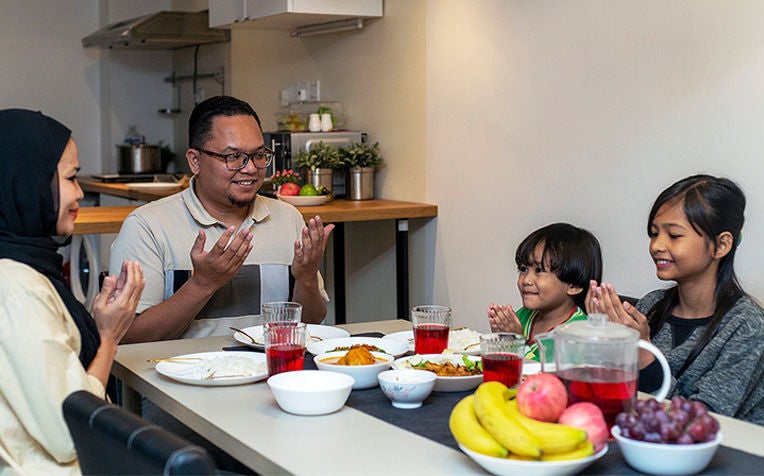HealthXchange will NEVER ask you to transfer money over a call. If in doubt, call the 24/7 ScamShield helpline at 1799, or visit the ScamShield website at www.scamshield.gov.sg.
Ramadan Fasting: What to Eat During Sahur

Sahur (pre-dawn meal) is meant to power you through the day so make it a balanced, wholesome meal.
Easy ways to make Ramadan meals healthier and last longer!
During meal times in Ramadan, Muslim families will typically gather round to enjoy a rich spread. After all, there is no better way to mark the start or end of fasting than with your favourite savoury foods. Or is there?
“When deciding what to eat during Ramadan, remember that Iftar and Suhoor help sustain your fast the following day, so consuming the right food is important,” says the Department of Dietetics from Singapore General Hospital (SGH), a member of the SingHealth group.
What foods to eat during Sahur/suhoor
For Sahur/suhoor (pre-dawn meal)
Sahur (suhoor) or the pre-dawn meal needs to be wholesome to provide enough energy to last during the long hours of fasting.
Suhoor should include the following foods:
Fruits and vegetables
Rich in fibre, fruits and vegetables are essentials during fasting as they increase the feeling of fullness and help prevent constipation. They also contain vitamins, minerals and phytochemicals that are vital for good health.Rice and alternatives
High-fibre carbohydrate foods like brown rice and wholemeal bread take longer to digest, helping to sustain energy levels longer.Meat and alternatives
Skinless chicken, fish and low-fat dairy products are a great source of protein while limiting your fat intake. Furthermore, they help repair and build body tissue, and build up your immune system. Consuming high-calcium dairy products also helps maintain strong bones. Those that are lactose intolerant can choose lactose-free milk or calcium-fortified soybean milk.
Click on the next page to find out what are the ideal foods to eat during Iftar (dinner).
Ref: S13
Check out our other Ramadan-related health articles:
Tips for Healthy Ramadan Fasting
Taking Medication During Ramadan
Contributed by
Related Articles
Public Events
Get the Health Buddy App
© 2025 SingHealth Group. All Rights Reserved.

















 Get it on Google Play
Get it on Google Play